The EAHP EU Monitor is a regular round up of news relevant to hospital pharmacy in Europe.
Medical device resources for hospital pharmacists
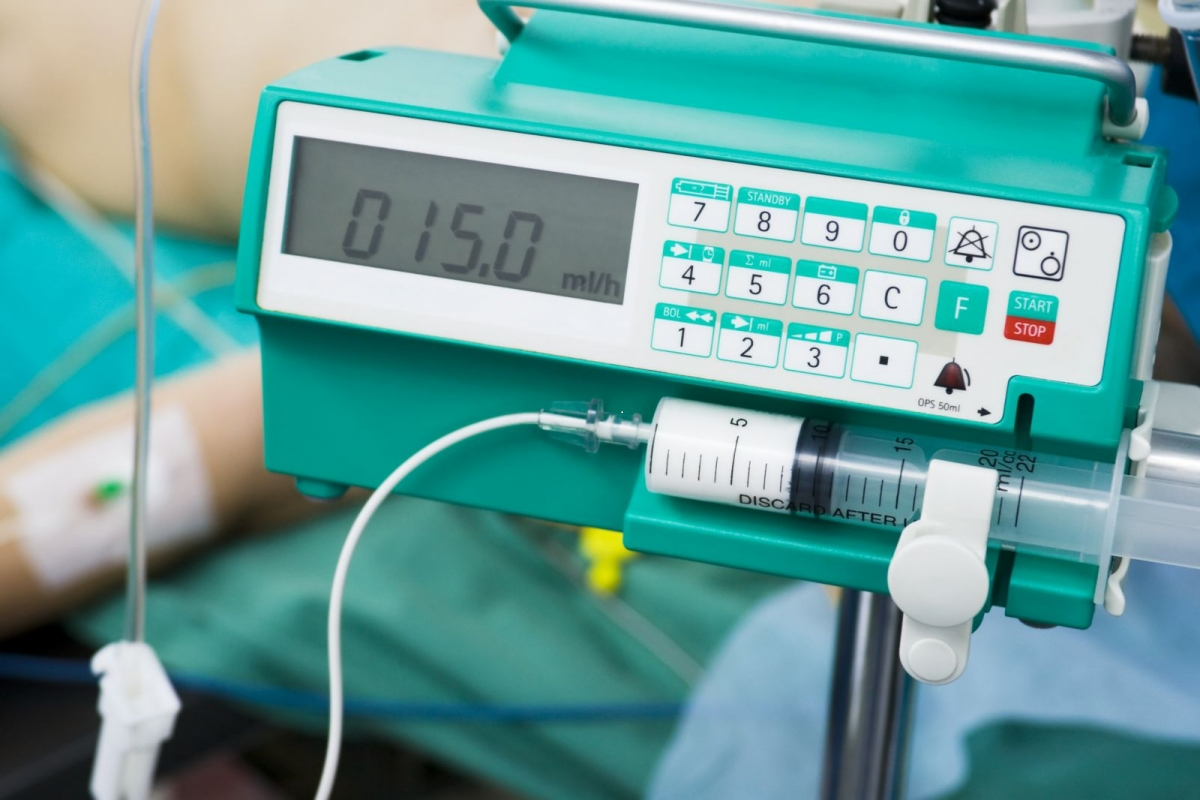
Medical devices are an essential part of the delivery of high-quality healthcare and their procurement and management in the European hospital setting is often under the authority of hospital pharmacists. To support its members, the European Association of Hospital Pharmacists (EAHP) has shared new resources to assist with the handling of medical devices.
To further improve the safety of medical devices for European patients, a new regulatory regime was adopted in spring 2017 encompassing both the Medical Device Regulation (MDR) and the Invitro Medical Device Regulation. With the MDR becoming fully applicable from May 2021 onwards, EAHP has joined forces with EURO-PHARMAT, one of the Association’s members based in France whose work focuses on medical devices. Together with EURO-PHARMAT, a list of medical device resources was created to assist hospital pharmacists dealing with medical devices across Europe.
The policy page on medical devices contains EAHP’s Statement on the Medical Device Regulation adopted in 2014 and EAHP’s Opinion on this topic released in 2019 and 2021. In addition, three resources have been included touching on hospital prescription and proper dispensing, reprocessing of single-use devices and a model file for medical devices.
Access EAHP’s policy page on medical devices HERE
Register for the EAHP2022 and benefit from special registration rate

In about 4 months, the European Association of Hospital Pharmacists (EAHP) will be hosting the largest European gathering of hospital pharmacists in Vienna, Austria. The 26th Congress of EAHP, which will take place from 23 to 25 March, will bring together healthcare professionals from all over the globe that are seeking to improve their level of training. If you are planning to attend, don’t forget to register and benefit from the special rate which will expire on 1st February.
EAHP’s Scientific Committee, under the lead of Thomas De Rijdt, has prepared an interesting and innovative Congress programme that caters to the educational needs of the profession and takes into account the latest developments in hospital pharmacy. The 26th edition of EAHP’s Congress – which will also celebrate our association’s 50th anniversary – centres around theme ” Hospital pharmacists – changing roles in a changing world”.
The Student Programme will explore contemporary ethical challenges in hospital pharmacy practice, while the Pharmacotherapy Session will be looking at advances in heart failure pharmacotherapy. Different seminars will be hosted that will provide attendees with up-to-date information on for example working with limited resources, the role of the hospital pharmacist in disaster management, waste reduction, gene and cell therapies, compounding for paediatrics and medication safety. Hands-on workshops will focus on teamwork in the hospital, pharmacoeconomics, quality improvement and quality assurance, the prescribing cascade and patient-centred medication reviews.
Registration is possible via EAHP’s website.
- Register for EAHP’s 26th Congress HERE
- Learn more about the programme of EAHP’s 26th Congress HERE
Health at a Glance 2021 – sheds light on the need to strengthen resilience
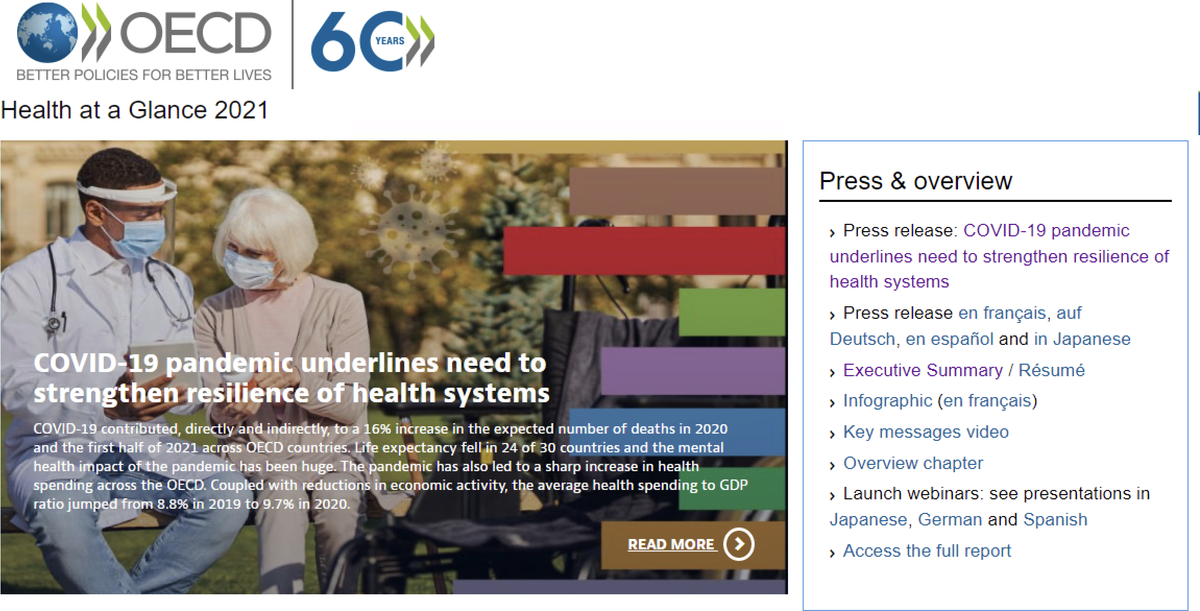
In November, the Organisation for Economic Co-operation and Development (OECD) has released the latest edition of Health at a Glance that provides a comprehensive set of indicators on population health and health system performance across OECD members and key emerging economies. The 2021 edition is specifically focusing on the COVID-19 pandemic and its impact, including deaths and illness caused by the virus, adverse effects on access and quality of care, and the growing burden of mental ill-health.
For the report data on health status, risk factors for health, access to and quality of health care, and health resources from the latest comparable official national statistics and other sources was analysed. The findings centre around the following key areas:
• COVID-19 has caused around 2.5 million excess deaths in OECD countries and had a major adverse impact on mental health
• Unhealthy lifestyles and poor environmental conditions continue to worsen the quality of life, cut lives short and make populations less resilient to health shocks
• Despite universal health coverage in most OECD countries, barriers to access persist, with COVID-19 disrupting health care for people with other needs
• Quality of care is improving in terms of safety and effectiveness, and more attention is being placed on patient-reported outcomes and experiences
• COVID-19 has led to sharp increases in health spending, but health workforce shortages persist
Alongside indicator-by-indicator analysis, an overview chapter summarises the comparative performance of countries and major trends.
Read Health at a Glance 2021 HERE
Council conclusions on resilience and crisis response
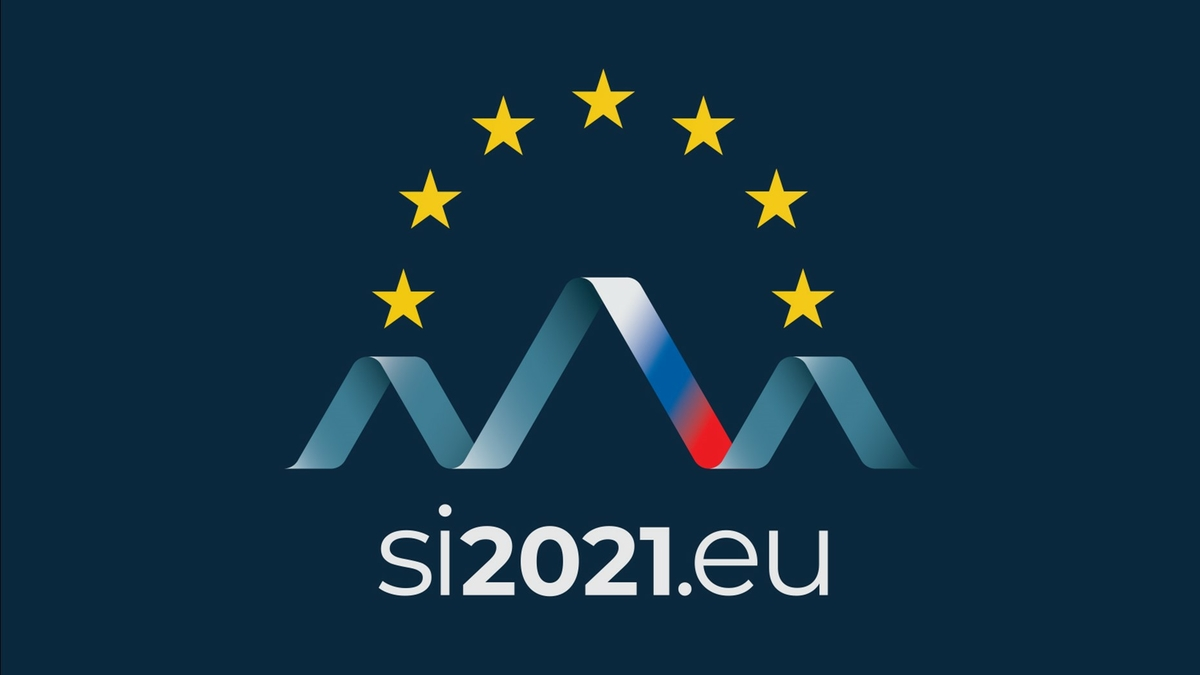
Under the auspices of the Slovenian Presidency, the Council adopted conclusions on enhancing preparedness, response capability and resilience to future crises. Due to the continued need for the evolvement of the EU’s crises response mechanisms the conclusions put forward measures the further strengthen resilience, preparedness and response.
The COVID-19 pandemic highlighted the need to work together to strengthen the resilience of the single market to disruptions, including to key EU supply chains and economic sectors, such as pharmaceuticals, medical devices and semiconductors, also taking into account the situation of cross-border communities and vital transit regions. Given the indispensable role of the single market for the EU, the Council emphasises that crisis-related measures should be temporary, proportionate and fully coordinated, with the objective of resuming as soon as possible the normal functioning of the single market, including the free movement of persons, goods, services and capital as foreseen in the Treaties.
Read the Council conclusions HERE
FIP Survey: Pediatric Oral Extemporaneous Preparations & Practices

The Pediatric Formulations Focus Group (PFFG) of the International Pharmaceutical Federation (FIP) has launched a survey to identify current oral extemporaneous compounding practices, challenges and needs in different geographic regions.
FIP’s PFFG strives to standardize oral extemporaneous pediatric preparations and practices. Extemporaneous compounding continues to play an important role in pediatric preparations. There is considerable variability, however, in liquid pediatric compounding practices within regions and even greater global disparities which increases the risks to the pediatric population. Moreover, some drug products contain excipients that exceed recommended exposure levels. There is a need for a global and coordinated effort to harmonize oral extemporaneous compounding practices. The survey is available in nine languages and takes around 10 minutes to complete.
Access the survey HERE
EJHP: Widening the net: a literature review of antimicrobial agents with potential suitability for outpatient parenteral antimicrobial therapy services—the importance of storage and stability

The systematic review included in the online first edition of the European Journal of Hospital Pharmacy (EJHP) looked at outpatient parenteral antimicrobial therapy (OPAT) services using continuous infusions of antimicrobial agents in elastomeric devices require evidence of acceptable stability of the agent over the infusion period. It was concluded that some drugs identified in our review are unlikely to be suitable for continuous infusion in OPAT services due to instability. Using a ‘fresh-fill’ approach, without refrigerated storage, may make some drugs useful while other agents should be considered for further assessment to Yellow Cover Document standards. The impact of buffering for penicillins should be assessed further.
Read the systematic review HERE
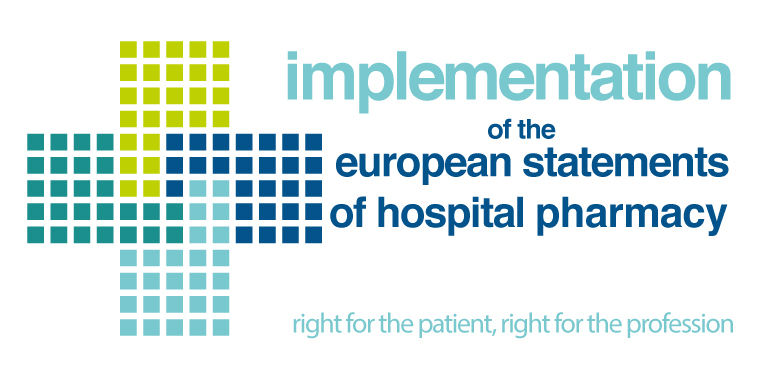 |
[EAHP Statement Corner]
|
Are you familiar with the commented version of the European Statements?
At the beginning of November, EAHP published the commented version of its European Statements of Hospital Pharmacy. The commented version provides additional information for some of the Statements to further clarify their meaning. If you have not seen it yet, you can read it HERE.
 |
[COVID-19 Updates]
|
EAHP’s COVID-19 Resource Centre
To assist its member associations and individual hospital pharmacists in this critical time with the provision of the best possible care for patients, EAHP has decided to gather and make available information on COVID-19 relevant for the hospital pharmacy profession.
- Access the Resource Centre HERE
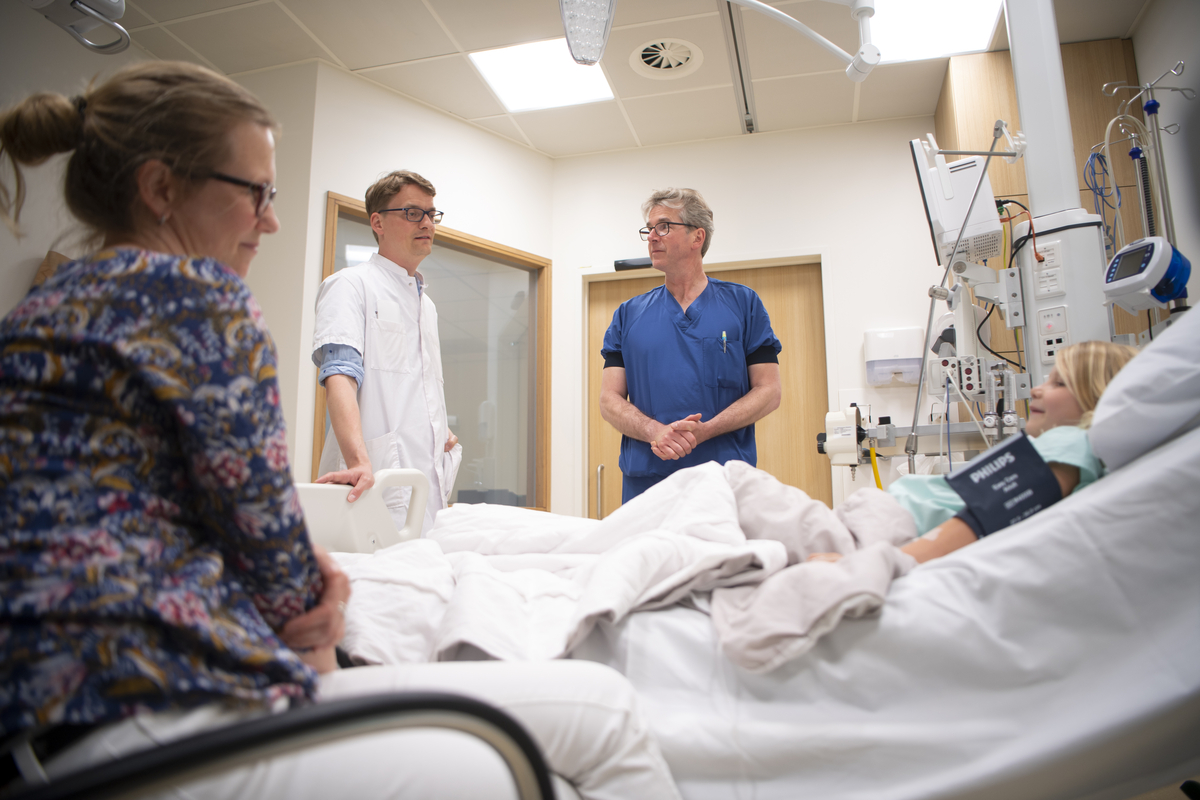 |
[Spotlight]
|
EAHP Position Paper on Hospital Pharmacy Specialisation
Hospital pharmacists are the key stakeholders responsible for medication management and safety in the hospital environment, covering both in- and out-patient services and supporting the seamless transition of care for patients moving within the healthcare system. To provide the best treatment for all patients, hospital pharmacists must be able to operate in a complex hospital setting and work collaboratively within multi-disciplinary healthcare teams.
To prepare the hospital pharmacy profession for the future, the European Association of Hospital Pharmacists (EAHP) adopted the European Statements of Hospital Pharmacy in 2014. They express commonly agreed objectives that every European health system should aim for in the delivery of hospital pharmacy services. To further enhance the quality, safety and equity of access to patient care in every European country, EAHP additionally created the Common Training Framework (CTF) project for hospital pharmacy education in Europe. This project not only fosters the further development of hospital pharmacy practice but also seeks to guarantee the access of European citizens to the highest available standard of care and the freedom of movement of the hospital pharmacy profession which is currently not accessible to all.
In June 2021, EAHP’s General Assembly adopted a Position Paper on Hospital Pharmacy Specialisation. The position centres around advancing the profession by harmonising the recognition of hospital pharmacy education, enhancing the role of the hospital pharmacist and preparing the profession for future challenges.
To make a difference in medication by advancing the hospital pharmacy profession, EAHP
- calls on the European Commission and the Member States to assist the Association in setting up a CTF through the adoption of a delegated act;
- touches on the need for Member States to recognise the changing role of the hospital pharmacists and further foster their implementation; and,
- underlines the importance of further promoting the uptake of such cross-sector tools inter-sector communication, coordination and multi-disciplinary collaboration in all healthcare facilities should be strengthened.
To adequately address future challenges linked to the ageing society, changing healthcare needs and other unknown factors, like future pandemics, EAHP urges that Member States invest in better workforce planning for the hospital pharmacy profession, including the availability of hospital pharmacy services for all patients of each hospital.
- Read EAHP’s Position Paper on Hospital Pharmacy Specialisation HERE
European Commission – Public consultation on the revision of the general pharmaceutical legislation
This public consultation aims to collect views of stakeholders and the general public in order to support the evaluation of the existing general pharmaceutical legislation and the impact assessment of its revision. It builds further on the public consultation conducted for the preparation of the pharmaceutical strategy for Europe.
Deadline – 21st December 2021
- Access the consultation HERE
EDQM – Draft monograph on Oxygen (98 per cent) published for comment in Pharmeuropa
A new draft monograph, Oxygen (98 per cent) (3098), has been published for comment by the European Directorate for the Quality of Medicines & HealthCare (EDQM). This draft monograph is the outcome of a thorough examination of the substantial response to the request for feedback issued in April 2020 and which prompted lively and constructive discussions with regulatory experts in the field, as well as a series of dedicated European Pharmacopoeia (Ph. Eur.) expert meetings.
Deadline – 31st December 2021
- Access the consultation HERE

































